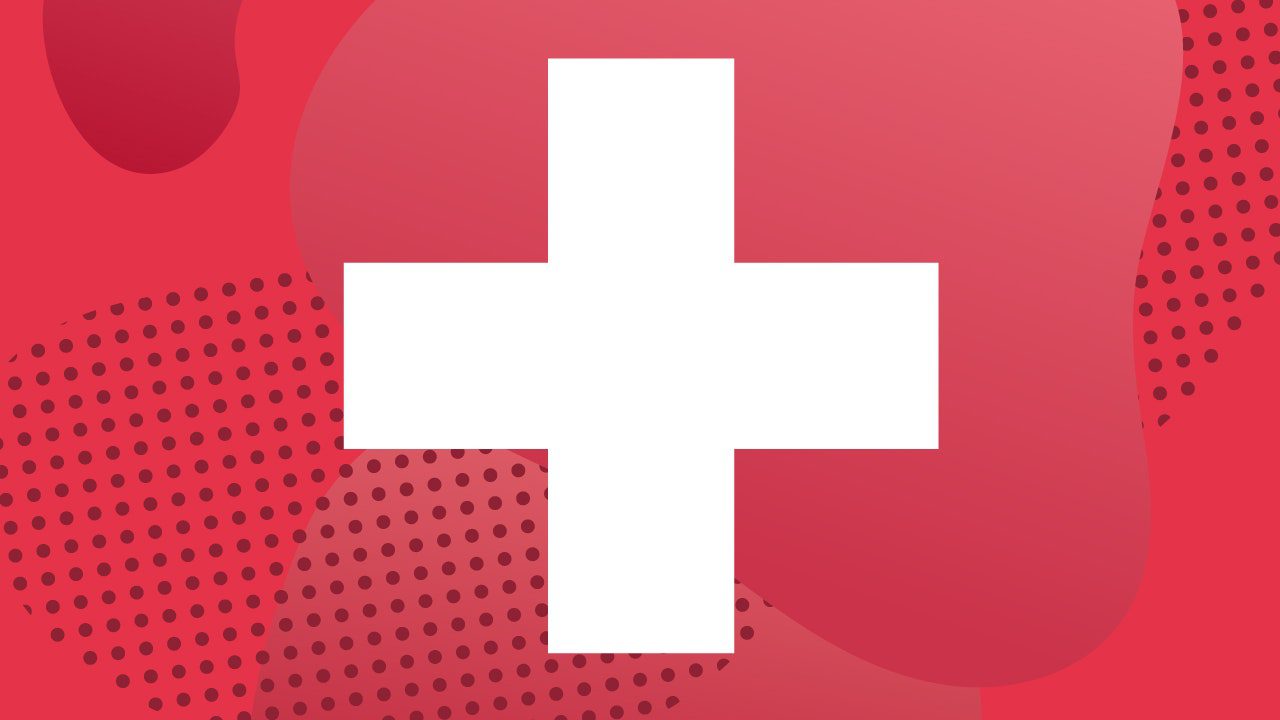Key Takeaways:
1. Prioritize travel insurance: Investing in a comprehensive travel insurance plan is essential when traveling on a budget, as it provides financial protection in case of emergencies.
2. Carry important documents and contact information: Always have copies of your passport, visa, and emergency contact numbers easily accessible in case of loss or theft.
3. Research local emergency services: Before embarking on your trip, familiarize yourself with the local emergency services available at your destination to ensure prompt assistance in case of any unforeseen events.
4. Prepare a basic first aid kit: Carrying a small first aid kit with essentials like band-aids, pain relievers, and antiseptic wipes can come in handy during minor emergencies and save you from unnecessary expenses.
5. Stay updated with travel advisories: Keep yourself informed about any potential risks or hazards at your destination by regularly checking travel advisories issued by your country’s government or reputable sources.
Common Emergencies that Budget Travelers May Encounter
Traveling on a budget often means exploring off-the-beaten-path destinations and taking part in adventurous activities. While this can be exciting, it also increases the likelihood of encountering certain emergencies. One common emergency that budget travelers may face is getting lost or stranded in an unfamiliar location. This can happen if you venture into remote areas without proper navigation tools or if you miss a connecting transportation option due to delays or cancellations.
Another common emergency for budget travelers is falling ill or getting injured while on the road. Limited access to medical facilities or language barriers can make it challenging to seek appropriate medical care. Additionally, theft and pickpocketing are prevalent in many popular tourist destinations, which can result in loss of money, passports, and other valuables.
Lost or Stranded in an Unfamiliar Location
To avoid getting lost or stranded, it’s important for budget travelers to plan their routes carefully and have backup options in case of unexpected circumstances. Research the area you’ll be visiting beforehand and familiarize yourself with local transportation options and landmarks. Carry a map, compass, or GPS device to help navigate your way.
If you do find yourself lost or stranded, try not to panic. Stay calm and assess your surroundings. Look for signs of civilization or people who might be able to assist you. If possible, use your phone (if you have one) to call for help or use a navigation app to find your way back.
Tips:
- Plan your route ahead of time and familiarize yourself with local landmarks.
- Carry a map, compass, or GPS device as backup navigation tools.
- If lost or stranded, stay calm and look for signs of civilization or assistance.
- Use your phone or a navigation app to help find your way back.
Falling Ill or Getting Injured
When it comes to medical emergencies, prevention is key. Before embarking on your trip, make sure you have all necessary vaccinations and medications for the destinations you’ll be visiting. Carry a basic first aid kit with essential items such as bandages, antiseptic wipes, and pain relievers. It’s also important to have travel insurance that covers medical expenses in case of emergencies.
If you do fall ill or get injured while traveling, seek medical attention as soon as possible. If language barriers are an issue, try finding a local who can help translate or visit a tourist information center where they may have multilingual staff. In more serious cases, contact your travel insurance provider for guidance on nearby medical facilities and assistance.
Tips:
- Get necessary vaccinations and medications before your trip.
- Carry a basic first aid kit with essential items.
- Have travel insurance that covers medical expenses.
- If ill or injured, seek medical attention and ask for translation assistance if needed.
Preparing for Emergencies: Tips for Budget Travelers
Research your destination
Prior to embarking on your budget travel adventure, it is crucial to thoroughly research your destination. This includes understanding the local emergency services available, such as hospitals, police stations, and fire departments. Additionally, familiarize yourself with any potential natural disasters or safety concerns specific to the area you will be visiting.
Create a communication plan
One of the most important aspects of preparing for emergencies as a budget traveler is establishing a communication plan. Make sure to have a reliable method of contacting family or friends back home in case of an emergency. This could include purchasing a local SIM card or ensuring that your phone has international roaming capabilities. It is also advisable to share your itinerary with someone you trust so they are aware of your whereabouts at all times.
Make copies of important documents
- Passport
- Driver’s license
- Travel insurance policy
- Credit cards
- Emergency contact information
In case of loss or theft, it is essential to have copies of important documents readily available. Make multiple copies and store them separately from the originals. You can also consider scanning these documents and saving them digitally in a secure location, such as cloud storage or email.
Essential Items for a Budget Traveler’s Emergency Kit
A well-prepared emergency kit can make all the difference during unexpected situations while traveling on a budget. Here are some essential items to include:
- First aid supplies: Band-aids, antiseptic wipes, pain relievers, and any necessary prescription medications.
- Emergency contact information: Keep a list of important phone numbers, including local emergency services and your embassy or consulate.
- Portable charger: Ensure you have a fully charged portable charger to keep your devices powered in case of power outages or limited access to electricity.
- Cash: Keep a small amount of local currency and some US dollars as backup in case ATMs are unavailable or credit cards cannot be used.
- Water bottle and snacks: Stay hydrated and energized by carrying a refillable water bottle and non-perishable snacks.
Remember to pack these items in a compact and easily accessible bag so that you can quickly grab them during an emergency situation.
Staying Informed: How Budget Travelers Can Stay Safe During their Trip
Stay updated on travel advisories
Prior to your trip, regularly check for travel advisories issued by your government. These advisories provide valuable information about safety concerns, political unrest, health risks, and more. It is essential to stay informed about the current situation in your destination to make informed decisions regarding your travel plans.
Follow local news sources
To stay up-to-date with any developments or emergencies during your trip, follow reliable local news sources. This will help you stay informed about any potential risks or disruptions that may affect your safety. Additionally, consider signing up for email alerts or downloading relevant mobile apps that provide real-time updates on emergencies in the area.
Create an emergency communication plan with fellow travelers
- Exchange contact information
- Determine meeting points in case of separation
- Establish a system for checking in with each other regularly
Traveling with others? It is important to establish an emergency communication plan. Exchange contact information, determine meeting points in case of separation, and establish a system for checking in with each other regularly. This will ensure that everyone stays connected and accounted for during emergencies.
Affordable Options for Medical Assistance While Traveling on a Budget
Research local healthcare options
Prior to your trip, research the healthcare options available at your destination. Look for affordable clinics or hospitals that offer quality care. It is also advisable to familiarize yourself with any necessary vaccinations or health precautions specific to the area you will be visiting.
Consider travel insurance
Investing in travel insurance can provide peace of mind and financial protection in case of medical emergencies while traveling on a budget. Look for affordable travel insurance plans that offer comprehensive coverage, including medical expenses, emergency medical evacuation, and trip cancellation/interruption benefits.
Carry a basic first aid kit
- Band-aids
- Gauze pads
- Tweezers
- Antibiotic ointment
- Pain relievers
- Allergy medication (if applicable)
In addition to seeking professional medical assistance when needed, it is wise to carry a basic first aid kit. This can help address minor injuries or illnesses until you are able to access proper medical care.
Comprehensive Emergency Coverage: Travel Insurance for Budget Travelers
Travel insurance is an essential investment for budget travelers, providing comprehensive coverage and financial protection during emergencies. Here are some key features to consider when selecting travel insurance:
Medical coverage
Ensure that your travel insurance policy includes adequate medical coverage, including emergency medical expenses, hospitalization, and medical evacuation if necessary. This will protect you from unexpected healthcare costs while traveling on a budget.
Trip cancellation/interruption benefits
Look for travel insurance plans that offer trip cancellation or interruption benefits. This can reimburse you for non-refundable expenses in case your trip is canceled or cut short due to unforeseen circumstances such as illness, injury, or natural disasters.
24/7 emergency assistance hotline
- Medical assistance
- Travel advice
- Lost document assistance
- Emergency cash transfer
An important feature of travel insurance is access to a 24/7 emergency assistance hotline. This service provides immediate support and guidance during emergencies, including medical assistance, travel advice, lost document assistance, and emergency cash transfer if needed.
Handling Transportation Disruptions on a Budget: Tips for Travelers
Create a backup transportation plan
In the event of transportation disruptions such as flight cancellations or delays, it is crucial to have a backup plan. Research alternative modes of transportation available at your destination and keep contact information for local bus or train services handy. Additionally, consider purchasing refundable or flexible tickets whenever possible to minimize financial losses.
Pack essential items in your carry-on bag
To be prepared for transportation disruptions, pack essential items in your carry-on bag. This includes medications, important documents (passport, travel insurance policy), a change of clothes, toiletries, and any valuables. Having these items easily accessible will ensure you are prepared for unexpected delays or lost luggage.
Research transportation disruption policies of airlines and accommodations
- Flight cancellation and delay policies
- Refund or rescheduling options
- Compensation for inconveniences
Prior to booking flights or accommodations, research the transportation disruption policies of airlines and hotels/hostels. Familiarize yourself with their cancellation and delay policies, refund or rescheduling options, as well as any compensation they may offer for inconveniences caused by transportation disruptions. This will help you make informed decisions and choose providers that prioritize customer satisfaction during emergencies.
Sources of Support and Assistance for Budget Travelers in Emergency Situations
Contact your embassy or consulate
In case of emergencies while traveling on a budget, your embassy or consulate can provide valuable support and assistance. They can help with issues such as lost passports, legal matters, medical emergencies, and evacuation if necessary. Make sure to have their contact information readily available.
Reach out to local authorities
If you find yourself in an emergency situation while abroad, do not hesitate to contact local authorities such as the police or emergency services. They are trained to handle various situations and can provide immediate assistance when needed.
Utilize online travel communities and forums
- Travel forums (e.g., TripAdvisor)
- Social media travel groups
- Budget travel blogs/websites
In times of need, online travel communities and forums can be a valuable source of support and assistance. Join travel forums, social media travel groups, and follow budget travel blogs/websites to connect with fellow travelers who may have experienced similar emergencies or can provide advice and guidance.
In conclusion, with careful planning and preparation, it is possible to effectively handle emergencies while traveling on a budget. By prioritizing safety, seeking affordable alternatives, and utilizing available resources, travelers can ensure a smooth and worry-free journey without breaking the bank.





